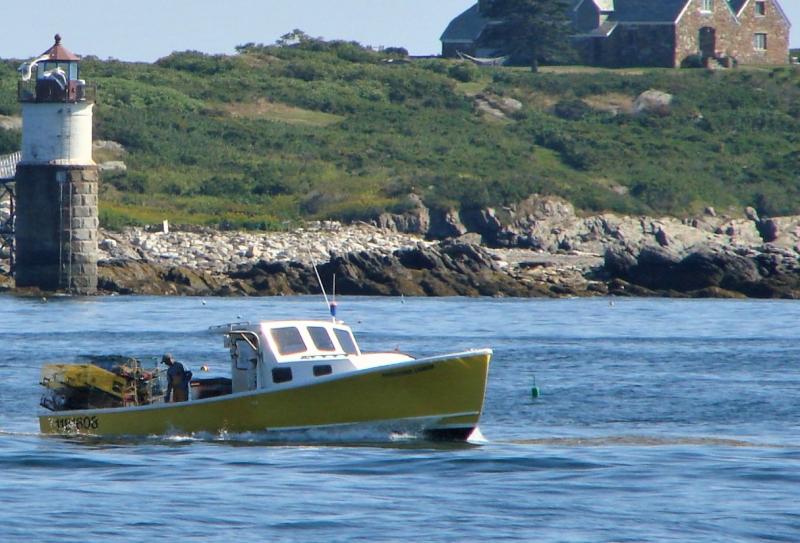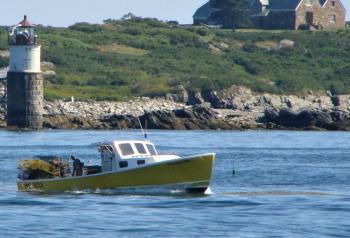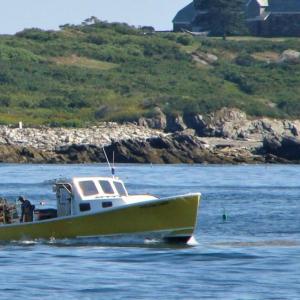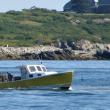Governor calls proposed federal regs to protect right whale ‘foolish’
Maine lobstermen have found an ally in their battle against new federal regulations designed to protect the endangered Atlantic right whale. Maine Gov. Janet Mills called a National Oceanic and Atmospheric Administration plan “foolish, unsupported by science, and ill-advised” in an open letter July 12 to Maine lobstermen.
Maine is under a federal order to craft a plan for reducing the threat to Atlantic right whales by 60 percent by September. The Atlantic right whale has been an endangered species for nearly 50 years and has a population of 441. NOAA has issued a plan to reduce deadly threats to right whales by 60 percent in the Northeast fishing state region. In April, a plan calling for using weak rope toppers on buoy lines in deeper waters and reducing buoy lines overall by 50 percent was met with nearly universal dissatisfaction by Maine lobstermen.
In her letter, Mills told lobstermen she directed the Department of Marine Resources to draft an alternative to the federal regulations. Maine lobstermen believe the federal plan unfairly lumped Maine in with other states and Canadian Maritime provinces regarding recent right whale deaths. On July 1, Canadian officials reported the sixth right whale death this year off the coast of Nova Scotia.
Mills wrote, “Maine is known around the globe for its lobster.” She put the federal government on notice she would protect the state’s and fishermen’s interests. She said there was a disturbing lack of evidence connecting the Maine lobster industry to the problem. “My administration will not allow any bureaucrat to undermine our lobster industry or our economy with foolish, unsupported and ill-advised regulations. I stand with you and will do everything I can as your governor to protect your rights and your livelihoods and defend Maine’s lobster industry in the face of absurd federal overreach,” she said.
Lobsterman Mark Brewer of Boothbay has fished for nearly 30 years and can’t recall a time in recent memory of a dead right whale in the Gulf of Maine. He fears the federal plan would dramatically alter the local fishing industry without saving a single right whale in Maine waters. “If their plan was implemented, it would require fishing more traps on a line between two buoys. Our boats aren’t equipped to withstand that. Plus, it would make it very dangerous for us with all the rope on deck, and that many traps plus weather conditions would’ve made a recipe for disaster,” Brewer said.
On July 11, the Maine Lobstermen Association thanked Mills for her support. Mills directed DMR Commissioner Pat Keliher to design a new risk reduction target based on the Maine lobstermen’s actual risk to right whales. He is scheduled to present the plan in August to local fishermen and the National Marine Fisheries Service in August.
“As the governor rightly points out, the data shows Maine is a small part of a large and complex problem. Maine’s solution must be right-sized to reflect the risk our fishery poses to right whales. We will not implement changes to achieve an arbitrary goal, if those measures won’t actually benefit the right whale,” wrote Maine Lobster Association communication director Melissa Waterman.
Keliher has presided over several forums this spring where fishermen displayed their displeasure with the proposed federal guidelines. Fishermen warned Keliher, the proposed federal plan would result in a smaller catch and expensive traps littering the ocean bottom as lost debris. Despite the governor’s support, Brewer believed state officials should’ve reached their conclusion sooner. “She did that under the direction of our union in the meeting that we had with her last week. Outside of that, she would've never done this. This is all because of the union,” he said.
Maine will continue working with federal officials on how to best protect the Atlantic right whale. Keliher described state and federal officials as being in a disagreement on the best course of action. “We are going to put together a plan based on the risk as we see it, not as they see it,” Keliher said.
Last year, Maine fishermen landed 119.6 million pounds of lobster valued at $485 million, making it the state’s most valuable fishery, according to state figures. Economists estimate the industry adds one billion dollars to the state’s economy in calculating lobster and lobster product sales.
Event Date
Address
United States


























